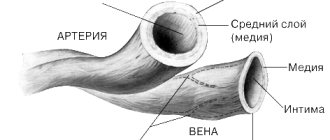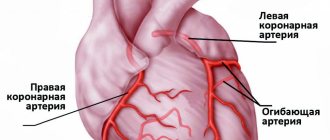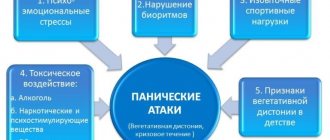Sex hormones regulate not only reproductive function, they influence organs and tissues, mucous membranes. The coordinated work of all systems and organs in a healthy woman does not lead to noticeable changes during one cycle. often various disturbances in the balance of sex hormones , especially obvious symptoms in the cardiovascular system. Fluctuations in the level of estrogens, gestagens and androgens lead to various changes - spasms and, conversely, dilation of blood vessels, which affects blood pressure.
On the eve of critical days, many women note a slight increase in blood pressure and a deterioration in their health. And in the presence of arterial hypertension, its course can become poorly controlled. Causes of increased blood pressure:
- Manifestations of PMS. An increase in circulating blood volume leads to an increase in heart function and blood pressure. You should start taking diuretics (at least herbs, herbs), follow a diet and take sedatives in advance.
- Premenopausal period. Estrogen receptors, which are located in the vascular endothelium, do not receive the required dose of the hormone, resulting in their spasm. The result of this action is an increase in blood pressure. These may be fluctuations or a persistent increase in numbers.
- Stress, psycho-emotional lability. In the second phase of the cycle, women are more susceptible to external influences. Stress, overwork, physical strain, domestic and family disagreements lead to disruption of blood pressure regulation at the level of the cerebral cortex
A decrease in pressure on the eve of critical days is more typical for young girls prone to hypotension. Most often they are of asthenic build, melancholic, and prone to depression. A decrease in blood pressure may be associated with the action of progesterone, taking analogue drugs - Utrozhestan, Duphaston and others. A decrease in blood pressure may be one of the manifestations of premenstrual syndrome.
In many ways, a woman’s condition is influenced by the nature of her menstruation; blood pressure can increase, but more often it tends to decrease. High blood pressure numbers are associated with ongoing symptoms of PMS due to the accumulation of fluid in the body and emotional lability. A decrease in blood pressure during menstruation is due to the following: heavy discharge, severe pain, taking medications, diet.
In healthy women, the numbers do not exceed 130/80 mmHg. Correcting your lifestyle, nutrition, and taking medications will help you cope with hesitation. If the readings are higher than indicated or lower than 90/60 mmHg, you should consult a doctor for a detailed examination and to exclude serious diseases.
Read more in our article about the reasons for changes in blood pressure during menstruation.
Can blood pressure increase during menstruation?
Fluctuations in hormones during the cycle affect the functioning of various body systems. In particular, blood pressure is controlled by both neural and hormonal components.
Attention! Pressure is the force of blood pressing on the vascular walls from the inside.
The indicator increases or decreases with the participation of the hypothalamus, pituitary gland and adrenal glands, which produce hormones that affect vascular tone:
- aldosterone;
- glucocorticoids;
- adrenalin.
The level of these hormones depends on the concentration of sex steroids. Sometimes under their influence the pressure increases or decreases before menstruation.
On the eve of menstruation, there is an increased synthesis of progesterone, which prepares the body for pregnancy:
- loosens the inner layer of the uterus;
- improves pelvic blood supply, dilating blood vessels.
Other organs and systems are also affected by progesterone. If blood pressure rises, a woman may feel headache and weakness.
Important! Normal blood pressure is 120/80 mm Hg. Art. In the absence of pathologies and malaise, the value in women may be lower.
Iron deficiency anemia - symptoms and treatment
Treatment is carried out with iron-containing preparations, mainly for oral administration and much less often for intramuscular or intravenous administration. The drugs should not be taken without a doctor’s prescription, since an excess of iron is dangerous due to its consequences - dental damage, the development of hepatitis, liver cirrhosis, diabetes and cardiovascular diseases. Severe allergic reactions are also possible.
If you have anemia, you should change your diet and include foods that contain iron in the most digestible form - veal, beef, lamb, rabbit meat, liver, tongue. It is important to remember that up to 30% of iron is absorbed from meat, 10% from fish, and only 3-5% from plant foods.
In case of anemia, correction of iron deficiency cannot be achieved by dietary changes alone. The reason for this is that the absorption of iron from food is limited, and in preparations it is contained in higher concentrations.
When treating patients with IDA, it is necessary to take into account the nature of the underlying disease and the presence of concomitant pathology, the age of the patients (children, old people), the severity of anemic syndrome and iron deficiency, tolerability of iron supplements, etc. [3].
For mild to moderate anemia, it is better to take iron supplements orally along with ascorbic or folic acid , as they improve the absorption of iron.
Within two hours before or after taking iron supplements, it is not recommended to drink coffee and caffeine-containing drinks (cocoa, chocolate, tea), cereals (rye, barley, oats, wheat), nuts, legumes, milk, eggs and dairy products, fatty and flour products, as well as some medications and vitamins containing calcium, magnesium, zinc, selenium, iodine, chromium. This will help avoid deterioration in iron absorption. All iron supplements are prescribed by a doctor individually. The course of treatment is at least 1.5-2 months, possibly longer. In addition to restoring the level of iron in the blood, you need to create its reserve in the body, that is, increase the level of ferritin. The success of treatment is indicated by normalization of hemoglobin levels after 1-2 months [9][10].
If iron preparations cannot be taken orally (for example, in case of intolerance or impaired absorption of iron in the intestine), then they are administered intramuscularly or intravenously. Injectable iron preparations are used only in hospitals, as they can cause shock reactions. They cannot be used during pregnancy and lactation.
, red blood cell transfusion is performed in a hospital setting
Hematogen can be used as a therapeutic and prophylactic agent for patients who do not have diabetes mellitus. It contains iron, which binds proteins obtained from the blood of cattle, as well as ascorbic acid and the necessary protein complex. However, this is a fairly high-calorie product - 100 g of hematogen contains 350-500 kilocalories, this should be remembered when including it in the diet.
Why does blood pressure rise before menstruation?
Experts say that the rate decreases and increases for various reasons. If blood pressure rises before menstruation, both physiological and pathological factors need to be considered.
Physiological reasons
Often during menstruation, women suffer from headaches, the cause of which can be physiological and pathological changes. When blood pressure constantly rises during critical periods, this does not always indicate pathologies of the cardiovascular system.
Pressure rises due to:
- Edema. Under the influence of estrogens, changes occur in the water-salt balance. Hormones promote fluid retention, which is most acutely felt by the hypothalamus. The resulting swelling prevents its normal functioning. Vascular tone increases, squeezing nerve endings.
- Migraine. Intense headaches occur due to hormonal surges and excessive production of prostaglandins. Blood vessels experience both constriction and dilation. This leads to increased pulsation. The pressure gradually rises.
- Psycho-emotional changes. Before menstruation, women experience tearfulness and irritability, which are caused by changes in hormonal levels. Serotonin levels decrease, causing vasoconstriction. This is why blood pressure often rises during menstruation.
These reasons lead to increased blood pressure during menstruation.
Pathological causes
The value often rises with the following pathologies in the anamnesis:
- osteochondrosis developing in the cervical region;
- diseases of the digestive tract;
- diseases related to the cardiovascular system.
Important! If the reading on the tonometer constantly increases during menstruation, the role of heredity should also be taken into account.
Why is it elevated before menstruation?
On the eve of critical days, many women may notice a slight increase in blood pressure and a deterioration in their health. And in the presence of arterial hypertension, its course can become poorly controlled. This is possible for several reasons:
- Manifestation of premenstrual syndrome . At the same time, women note fluid retention in the body, especially if the diet is not followed and smoked meats, pickles, and large amounts of sweets are included in the diet. An increase in circulating blood volume leads to increased heart function and increased blood pressure.
Along with this, women often note tension in the mammary glands, mood lability, and a tendency to depression. If such manifestations occur, you should start taking diuretics in advance (at least herbs, herbs), follow a diet and take sedatives (you can also give preference to herbal components).
- Fluctuations in blood pressure during the premenopausal period . At this time, women, due to a decrease in ovarian function, experience estrogen deficiency, even if menstrual function is not yet impaired. In the second phase of the cycle, this condition worsens due to an even greater decrease in estrogen levels and an increase in gestagens.
Estrogen receptors, which are located in the vascular endothelium, do not receive the required dose of the hormone, resulting in their spasm. The result of this action is an increase in blood pressure. These may be fluctuations or a persistent increase in numbers.
- Against the background of stress, psycho-emotional lability . In the second phase of the cycle, women are more susceptible to external influences. Stressful situations, overwork, physical stress and other domestic and family disagreements lead to disruption of blood pressure regulation at the level of the cerebral cortex.
What to do if your blood pressure rises before your period
If the indicator regularly rises, you must stop smoking and drinking alcoholic beverages. For accompanying headaches, you can apply cold compresses and rub essential oils of eucalyptus, lavender or rosemary into the temple area. The following should be excluded from the diet:
- chocolate;
- potato;
- pork;
- sausages and smoked meats.
If the indicator increases, antispasmodics are taken, which promote vasodilation.
Important! Medications are prescribed by the doctor, taking into account the data of the anamnesis and examination.
Prevention of high blood pressure before menstruation
An increase or decrease in blood pressure on the 2-3rd day of menstruation is observed in most representatives of the fair sex. Therapy is prescribed if the indicator rises constantly and shows high values.
Preventive measures include:
- reducing the amount of salt consumed to 5 g per day;
- physical activity, such as yoga, Pilates or breathing exercises;
- exclusion of coffee;
- organizing a regular and balanced diet, in particular, avoiding fried and spicy foods;
- good sleep;
- prevention of stress.
Prevention methods help if the indicator increases during menstruation. If you have persistent hypertension, you need to visit a specialist.
Low blood pressure before menstruation
During critical days, pressure surges may occur. Some women experience decreased levels.
It has been noticed that before menstruation the value does not rise in emotionally unstable women, who are characterized by:
- insomnia;
- decreased appetite;
- increased breast sensitivity, cravings for sweet foods.
Smoking, vitamin deficiency, emotional factors and gynecological diseases are additional causes of low blood pressure during menstruation. The following factors are identified that cause blood pressure to drop before and during menstruation:
- Gynecological diseases that are accompanied by intense discharge (fibroids, polyposis, endometriosis). Chronic blood loss causes a decrease in hemoglobin and oxygen starvation of the brain.
- Violation of the ratio of estrogens and progestins. With hyperestrogenism, glucose production decreases and blood vessels dilate. This factor is more often detected in women with a fragile physique.
- Taking painkillers. Constant use of antispasmodics during menstruation causes dilation of blood vessels.
- Algodismenorrhea. The pathological condition is observed with excessive production of prostaglandins. In some cases, specific sensitivity to pain increases.
- Endocrine disorders in combination with VSD. With these pathologies, a history of high pulse is observed.
Attention! Sometimes a decrease in indicators is accompanied by a delay in menstruation due to poor nutrition. A lack of substances necessary for the body leads to low vascular tone.
Classic PMS symptoms:
- anxiety disorders;
- causeless melancholy and depression;
- decreased concentration;
- fluctuations in emotional background;
- feeling of fear;
- pressure surges;
- frequent urination;
- increased drowsiness;
- nausea;
- stomatitis;
- swelling of the limbs;
- diarrhea;
- painful syndrome in the joints;
- migraine;
- excessive sensitivity to odors.
The manifestation of the syndrome also depends on the stage of development of the “disease”. Doctors classify them into 3 stages. 1st – symptoms are mild, lack of progress over the years, their complete cessation with the onset of menstruation. 2nd – the symptoms are pronounced and significantly affect the woman’s ability to work and her emotional background. 3rd – severe symptoms that progress over the years.
When to see a doctor
It is necessary to pay attention to the condition of the body if the indicator rises for the first time during menstruation. Hypotension or hypertension can be suspected if pressure surges during menstruation persist on the 4th-5th day of the cycle.
You should consult a doctor immediately if you experience the following accompanying symptoms:
- vomit;
- confusion of consciousness and speech;
- intense bleeding;
- severe pain.
Useful video
Watch this video about whether pressure surges are associated with menstruation:
Similar articles
- Menstruation or bleeding - how not to confuse the dangerous...
It can be very difficult to independently understand whether it is heavy periods or bleeding. However, there are clear signs of menstruation and bleeding, as well as additional symptoms for which it is important to see a doctor. Read more - Toilet and menstruation: features, why it hurts
If a painful toilet and menstruation coincide, then the reasons may be hidden diseases, non-compliance with the diet, the presence of hemorrhoids and others. You can get rid of them if you identify and treat the pathology, as well as carry out prevention. Read more
- Increase in temperature before menstruation...
An increase in temperature occurs before menstruation due to a number of natural reasons (conception, PMS and others), as well as due to the presence of certain diseases. Read more
- Anovulatory menstrual cycle: could it be...
Sometimes there may be menstruation without ovulation. Doctors call this an anovulatory menstrual cycle. If this happens once or twice a year, then there is no need to panic. But if menstrual bleeding occurs without ovulation when planning a pregnancy, then this is a reason to visit a doctor. Read more





